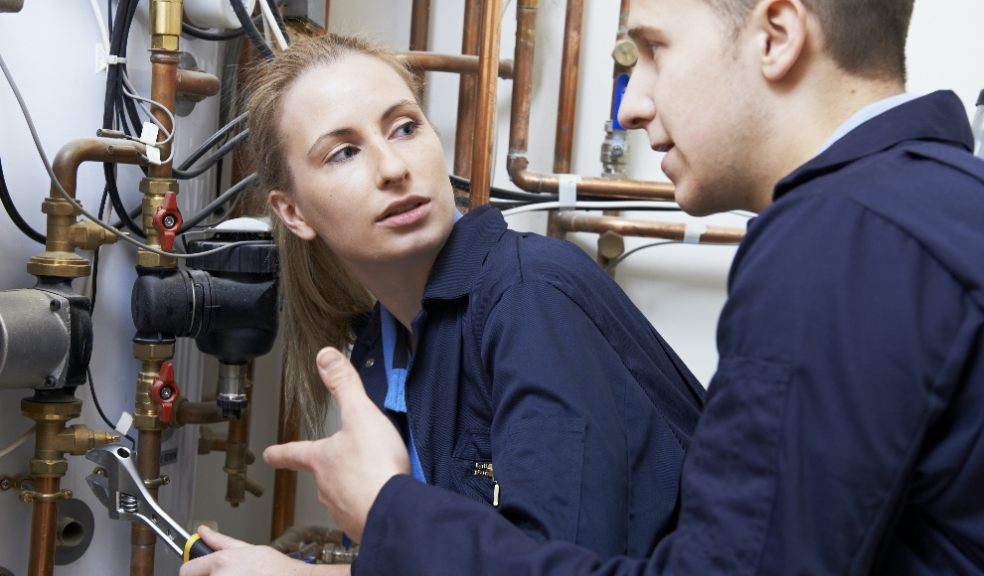
The Importance of Professional Heating Engineers: Ensuring Efficient and Safe Heating Systems
If you're a homeowner, you know how important it is to have a properly functioning heating system. Not only does it keep you and your family warm during the colder months, but it also ensures that your home is safe and comfortable. That's why it's crucial to have a professional heating engineer take care of your heating system.
Heating engineers are highly trained professionals who specialize in the installation, maintenance, and repair of heating systems. They have the knowledge and expertise to ensure that your heating system is working efficiently and safely. Whether you have a gas, electric, or oil heating system, a heating engineer can help you keep it running smoothly.
Having a professional heating engineer take care of your heating system has many benefits. They can identify and repair any issues before they become major problems, which can save you money in the long run. Additionally, they can provide you with advice on how to use your heating system efficiently, which can help you save money on your energy bills. Overall, hiring a professional heating engineer is an investment in the safety and comfort of your home. For more information, click here.
The Role of Heating Engineers
Heating engineers play a crucial role in ensuring that your heating system is working efficiently and safely. They are skilled professionals who are trained to install, maintain, and repair heating systems. In this section, we will discuss the three main areas of their expertise: heating system maintenance, heating repairs, and heating installations.
Heating System Maintenance
Regular maintenance of your heating system is essential to keep it running efficiently and to prevent breakdowns. Heating engineers can carry out a range of maintenance tasks to ensure that your system is working at its best. These tasks include:
- Cleaning and replacing filters
- Checking and adjusting the thermostat
- Inspecting and cleaning the heat exchanger
- Checking and adjusting the pressure in the system
- Checking and bleeding radiators
By having your heating system regularly maintained by a professional heating engineer, you can save money on your energy bills and avoid costly repairs.
Heating Repairs
If your heating system breaks down, a heating engineer can quickly diagnose the problem and carry out any necessary repairs. They have the knowledge and expertise to fix a range of problems, including:
- Faulty thermostats
- Leaking pipes
- Broken pumps
- Faulty control valves
- Blocked flues
Heating engineers can also carry out emergency repairs, ensuring that your heating system is up and running again as soon as possible.
Heating Installations
When it comes to installing a new heating system, it is essential to use a professional heating engineer. They can advise you on the best system for your home and carry out a safe and efficient installation. They will make sure that your system is correctly sized and that all components are installed correctly.
A professional heating engineer can also install energy-efficient heating systems, such as condensing boilers and heat pumps. These systems can help to reduce your energy bills and your carbon footprint.
In conclusion, heating engineers play a vital role in ensuring that your heating system is working efficiently and safely. By using a professional heating engineer for your heating system maintenance, repairs, and installations, you can be confident that your system is in good hands.
Benefits of Professional Heating Services
When it comes to heating system maintenance, it's essential to hire a professional heating engineer. Not only do they possess the necessary expertise and experience, but they also ensure that your heating system is safe, compliant, and energy-efficient. Here are some of the benefits of professional heating services that you can enjoy:
Expertise and Efficiency
Professional heating services have the necessary knowledge and expertise to diagnose and fix any issues with your heating system. They can quickly identify the root cause of the problem and provide a solution that is both efficient and effective. They can also advise you on the best ways to maintain your heating system to prevent future breakdowns.
Safety and Compliance
Heating systems can be dangerous if not maintained properly. Professional heating engineers are trained to identify potential hazards and ensure that your heating system is safe and compliant with all relevant regulations. They can also advise you on the best ways to keep your heating system safe, such as installing carbon monoxide detectors.
Energy Efficiency and Cost Savings
Professional heating services can help you save money on your energy bills by ensuring that your heating system is operating at maximum efficiency. They can advise you on the best ways to reduce your energy consumption, such as upgrading to a more energy-efficient boiler or installing a smart thermostat. By reducing your energy consumption, you can save money on your energy bills and reduce your carbon footprint.
In conclusion, professional heating services are essential for maintaining a safe, compliant, and energy-efficient heating system. By hiring a professional heating engineer, you can enjoy the benefits of their expertise and efficiency, ensure the safety and compliance of your heating system, and save money on your energy bills.
Choosing the Right Heating Engineer
When it comes to choosing the right heating engineer for your needs, there are a few key factors to consider. By taking the time to research and evaluate your options, you can ensure that you are working with a professional who is qualified, experienced, and reliable. Here are some key considerations to keep in mind:
Certifications and Qualifications
One of the first things to look for when choosing a heating engineer is their certifications and qualifications. In the UK, there are several relevant bodies that provide accreditation and certification for heating engineers, including Gas Safe Register, OFTEC, and CIPHE. By ensuring that your heating engineer is certified by one or more of these organisations, you can have confidence that they have the necessary knowledge and skills to perform their work safely and effectively.
Experience and Reputation
Another important factor to consider is the experience and reputation of the heating engineer you are considering. Look for a professional who has been in the industry for several years and has a track record of success. You can also check online reviews and ratings to get a sense of their reputation in the community. By working with an experienced and reputable heating engineer, you can feel confident that your heating system is in good hands.
Insurance and Guarantees
Finally, it is important to ensure that your heating engineer is fully insured and provides comprehensive guarantees for their work. This can give you peace of mind knowing that you are protected in the event of any issues or problems with your heating system. Be sure to ask about their insurance coverage and guarantees before hiring them to ensure that you are fully protected.
In summary, choosing the right heating engineer is an important decision that requires careful consideration. By evaluating their certifications and qualifications, experience and reputation, and insurance and guarantees, you can find a professional heating service that meets your needs and provides the peace of mind you deserve.
Common Heating Problems and Solutions
As a homeowner, you may encounter various heating issues that can be frustrating and inconvenient. Here are some common heating problems and solutions to help you troubleshoot and resolve them.
Boiler Issues
If your boiler is not working, it can lead to a lack of hot water and heating in your home. Here are some common boiler issues and their solutions:
-
No heat or hot water: This could be due to a broken diaphragm, airlock, or valve failure. You should check the pressure gauge and see if it's below 1. If so, you may need to repressurize the system or call a heating engineer for repairs.
-
Strange noises: If your boiler is making strange noises, such as banging or whistling, it could be due to a build-up of limescale or a faulty pump. You should call a heating engineer to diagnose and fix the problem.
-
Pilot light goes out: This could be due to a faulty thermocouple or a draft. You should check for any drafts and try relighting the pilot light. If it continues to go out, you should call a heating engineer to fix the issue.
Radiators Not Heating
If your radiators are not heating up properly, it could be due to several reasons. Here are some common issues and their solutions:
-
Cold spots: If your radiator has cold spots, it could be due to air trapped inside the system. You should bleed the radiator to release the trapped air.
-
Leaking radiator: If your radiator is leaking, it could be due to a faulty valve or a crack in the radiator. You should call a heating engineer to fix the issue.
-
Blocked radiator: If your radiator is not heating up at all, it could be due to a blockage in the system. You should call a heating engineer to diagnose and fix the problem.
Thermostat Malfunctions
If your thermostat is not working properly, it can lead to a lack of heating or overheating in your home. Here are some common thermostat issues and their solutions:
-
Thermostat not turning on: This could be due to dead batteries, a faulty thermostat, or a wiring issue. You should replace the batteries and check the wiring. If it still doesn't work, you should call a heating engineer to fix the issue.
-
Thermostat not turning off: This could be due to a faulty thermostat or a wiring issue. You should call a heating engineer to diagnose and fix the problem.
-
Inaccurate temperature readings: If your thermostat is giving inaccurate temperature readings, it could be due to a faulty sensor or a wiring issue. You should call a heating engineer to diagnose and fix the problem.
By understanding these common heating problems and solutions, you can troubleshoot and resolve issues quickly and efficiently. However, it's always best to call a professional heating engineer for more complex issues or if you're unsure how to fix the problem yourself.
Maintenance Tips for Homeowners
As a homeowner, it is important to keep your heating system well-maintained to ensure its efficiency and longevity. Here are some tips to help you maintain your heating system:
Regular Check-Ups
Regular check-ups by a professional heating engineer are crucial to ensure that your heating system is working properly. A heating engineer can identify any potential problems and fix them before they become major issues. It is recommended to have your heating system checked at least once a year.
Filter Cleaning and Replacement
Filters play a vital role in keeping your heating system running smoothly. Dirty filters can cause your system to work harder and less efficiently, leading to higher energy bills. Cleaning or replacing your filters regularly can help prevent these issues. Check your user manual to see how often your filters should be cleaned or replaced.
System Upgrades
Upgrading your heating system can improve its efficiency and save you money on energy bills in the long run. Consider upgrading to a newer, more energy-efficient model if your current system is old or outdated. A professional heating engineer can help you choose the best system for your home and install it properly.
By following these maintenance tips, you can keep your heating system running smoothly and efficiently. Regular check-ups, filter cleaning and replacement, and system upgrades are all important steps in ensuring the longevity of your heating system.
The Future of Heating Technology
As we move towards a more sustainable future, heating technology is also evolving to become more efficient and environmentally friendly. Here are some of the latest developments in heating technology that you should know about:
Smart Heating Systems
Smart heating systems are becoming increasingly popular as they allow you to control your heating remotely using a smartphone or tablet. These systems use sensors to detect when you are in the house and adjust the temperature accordingly, reducing energy waste. Some systems even learn your habits and adjust the heating based on your schedule.
Renewable Energy Sources
Renewable energy sources such as solar, wind, and geothermal are being used more frequently in heating installations. These sources are clean, sustainable, and can significantly reduce energy bills. Solar panels can be used to heat water, while geothermal heat pumps can extract heat from the ground to warm your home.
Innovations in Heating Efficiency
Innovations in heating efficiency are making heating installations more efficient than ever before. For example, condensing boilers can extract more heat from the fuel they burn, reducing energy waste. Heat recovery systems can also be used to capture waste heat and reuse it to heat water or other parts of the house.
In conclusion, the future of heating technology is looking bright. With the development of smart heating systems, renewable energy sources, and innovations in heating efficiency, we can expect to see more environmentally friendly and cost-effective heating installations in the future.
Frequently Asked QuestionsWhat qualifications are required to become a heating engineer?
To become a heating engineer in the UK, you typically need to obtain relevant qualifications such as a Level 3 Diploma in Plumbing and Domestic Heating. It's also essential to have a Gas Safe Register certification to work with gas appliances. Additionally, some employers may require you to have a valid driving license.
How does one ensure their heating system is maintained properly?
Regular maintenance is crucial to ensuring your heating system is functioning correctly. You can ensure proper maintenance by scheduling regular check-ups with a professional heating engineer. They will inspect your system, clean it, and identify any potential issues before they become more severe.
What are the career prospects for heating engineers in the UK?
The demand for heating engineers in the UK is on the rise, and there are plenty of opportunities for career growth. With the right qualifications and experience, you can advance to supervisory or management positions. Additionally, you can choose to specialize in a specific area of heating engineering, such as renewable energy systems.
What differentiates a heating engineer from other HVAC professionals?
Heating engineers specialize in installing, maintaining, and repairing heating systems, while HVAC professionals work with heating, ventilation, and air conditioning systems. While there is some overlap in the skills required, heating engineers have a more focused expertise in heating systems.
Can hiring a professional heating engineer save money in the long term?
Hiring a professional heating engineer can save you money in the long term by ensuring your heating system is functioning correctly and efficiently. Regular maintenance can help prevent costly repairs and replacements, and a professional can also advise you on energy-efficient upgrades that can reduce your energy bills.
What safety protocols should heating engineers follow on the job?
Heating engineers should follow strict safety protocols when working with heating systems, particularly those involving gas. This includes wearing appropriate personal protective equipment, ensuring proper ventilation, and following Gas Safe Register guidelines. They should also be knowledgeable about emergency procedures in case of a gas leak or other safety hazards.
Some info sourced from - https://www.britishgas.co.uk/home-services/boilers-and-heating/guides/trusted-gas-engineer.html




















